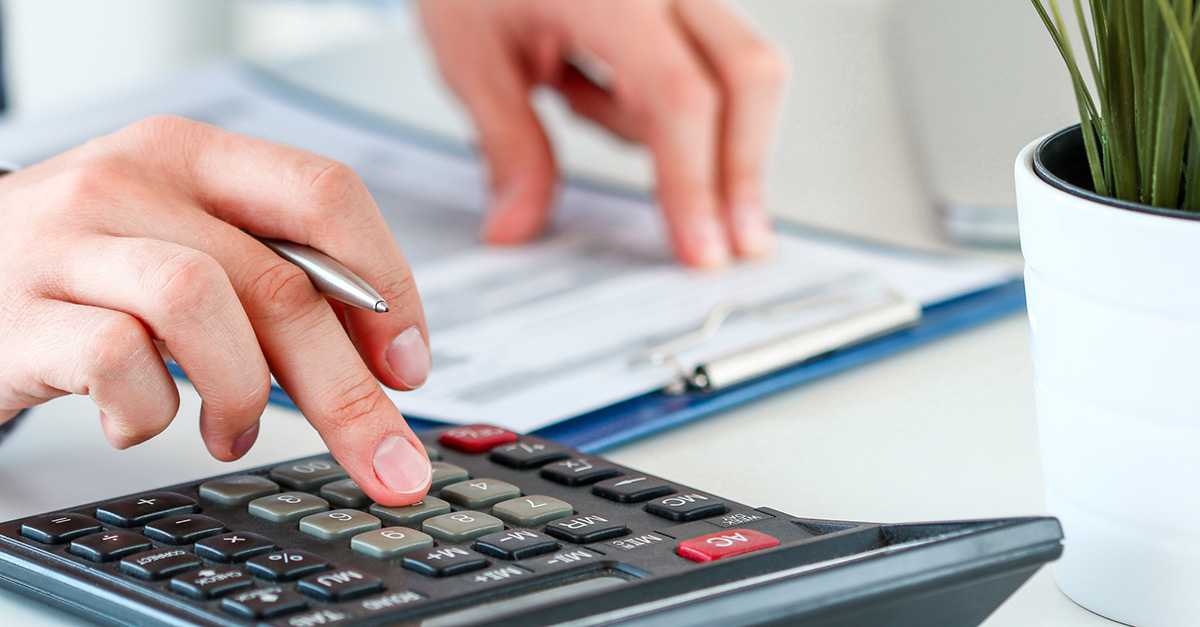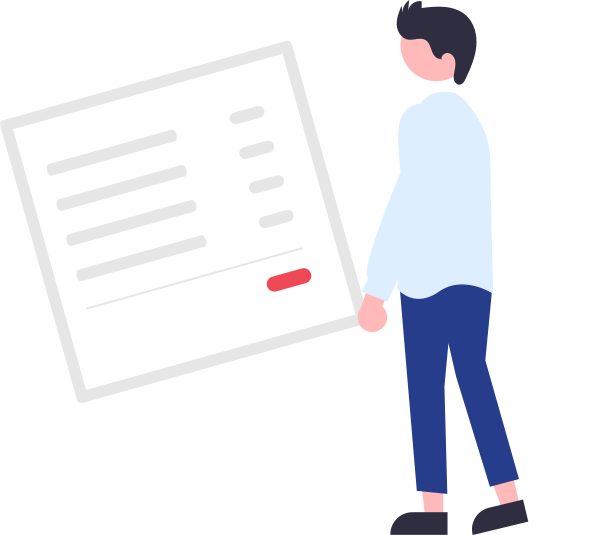Categories
Flat-rate tax for self-employed: 5 situations where you need to file a tax return

You pay one amount each month, which includes social security, health insurance and income tax. The flat-rate tax has relieved you of annoying paperwork so you don't have to worry about tax returns. But don't rejoice prematurely - it doesn't always apply! Find out which exemptions to look out for.
Flat-rate tax and tax returns - when to file?
"You don't file a tax return with a flat rate tax." - You've probably heard that one too many times. But as it happens with taxes, there are a few "buts". In these situations, you have to file a return even though you're on a flat-rate system:
- You have income other than business income of more than CZK 50,000 per year. To avoid having to deal with the paperwork associated with taxes, your total income from capital assets, rent and other (§ 8-10 on your tax return) must not exceed this limit. Keep an eye on it if you earn extra income from, for example, renting, selling securities or cryptocurrencies.
- You have income from employment that was not subject to withholding tax. Withholding tax is only deducted from your wages if you work under a work arrangement, you have not signed a taxpayer's declaration and your remuneration was less than CZK 11,500 per month. Do you work under another type of employment contract where wages are taxed in advance? Then you won't miss out on filing a tax return.
- Your business income exceeded CZK 2,000,000 per year. The flat-rate tax is only available to sole traders whose income from self-employment does not exceed this amount according to Section 7. Did you earn more? Great - but you have to file a regular tax return the following year.
- You have become a VAT payer. You are obliged to register for VAT from 1 January of the following year at the latest if your income in the calendar year exceeds CZK 2 million, or immediately whenever your annual turnover exceeds CZK 2,536,000 (equivalent to EUR 100,000). Then you are not exempt from filing a VAT return because the flat-rate scheme is not intended for VAT payers.
- You have become a partner in a public limited company or a general partner in a limited partnership. You must not use the flat-rate tax for self-employed persons when performing these functions.
Neither point applies to you? Then you'll really appreciate the benefits of the flat-rate scheme and you won't have to deal with the paperwork.
How to file a tax return with a flat tax?
If you don't meet the conditions for a flat-rate tax, you are obliged to file a tax return. How to do it?
- You work out your tax under the general rules as if you were not in the flat-rate scheme. You list all your income, including income from your business.
- On line 86 of the tax return, you fill in the advances paid under the flat-rate tax. For example, the amount in the first band includes £100 per month for income tax, which makes a total of £1,200 for the year.
- If you were employed, you will also enter the advance payments for employment tax on line 84.
- Any overpayment will be refunded by the tax authority or you will pay the underpayment.
Do the same for social security and health insurance. You send the statements to the Social Security and Health Insurance Institutions, with the premiums paid under the flat-rate tax serving as a deposit.
What next - can you stay in the flat-rate scheme?
If you breach certain conditions, you must leave the flat-rate scheme, start paying the normal social security and health insurance contributions and submit your tax return in the following year. This will be the case if:
- Your business income was more than CZK 2,000,000 per year.
- You became a VAT payer.
- You became a partner in a publicly traded company or a general partner in a limited partnership.
In the following situations, on the other hand, there is no reason to end the flat-rate scheme:
- Other income exceeded CZK 50,000 per year.
- You had income from employment not subject to withholding tax.
You submit a return to the tax office and continue to pay the flat-rate tax. However, if you continue to have this income, consider whether it makes sense to stay in the flat-rate scheme - you will have to file your tax return again next year.
TIP: Read our article on the rules for self-employed flat-rate tax to find out who it typically pays out to.
Don't worry about tax and leave it to us
Have you found you need to file a tax return but don't know how to do it? Contact us and we'll sort out your income tax return for you.
Write to us and we’ll get back
to you within 24 hours.
